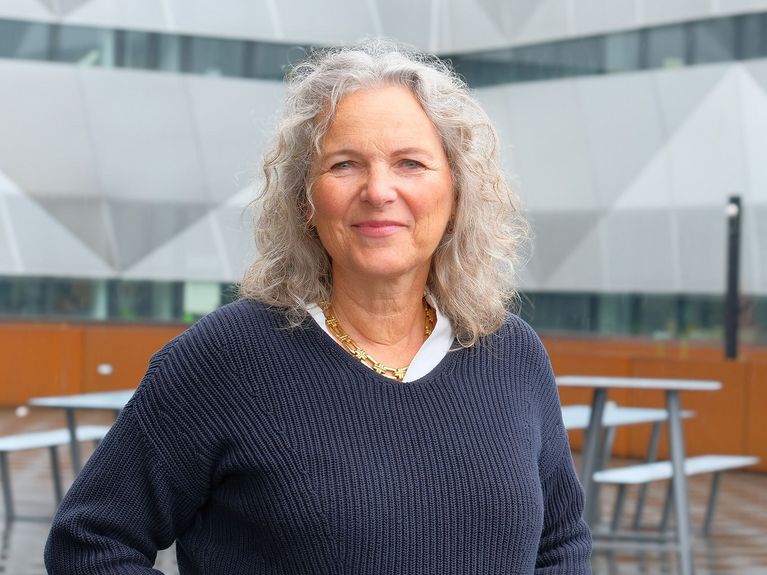Viewpoint
The deep sea: diving with depth, foresight, and responsibility

Prof. Sylvia Sander, Helmholtz Excellence Professor for Marine Mineral Resources at GEOMAR Helmholtz Centre for Ocean Research Kiel, and Chair of the European Marine Board’s Working Group on Deep Sea and Ocean Health. Image: GEOMAR
Climate change, environmental pollution, and increased access to marine resources are jeopardizing key ecosystem functions. GEOMAR marine researcher Sylvia Sander calls for urgent action to close the gaps in our knowledge about the deep sea and offers concrete recommendations on how to do so.
The deep sea is the largest habitat on our planet, yet also the least explored. Below 200 meters, a world that makes up 90 percent of the ocean’s overall volume begins. This world is home to a multitude of unknown species and unique ecosystems that play essential roles in the global climate and human health. Despite its importance, the deep sea remains understudied by scientists and underrepresented politically. This has to change.
2025 is a pivotal year. The BBNJ Agreement (the UN Agreement on Biodiversity in Areas Beyond National Jurisdiction) has established a legal framework that must now be actively implemented. Science and politics must work together here – nationally, Europe-wide, and globally.
The European Marine Board (EMB), a thinktank that brings together leading marine research institutes and other stakeholders, recently published a Future Science Brief showing how urgently we need to close our knowledge gaps about the deep sea. Based on a thorough review of current research shortcomings, the brief includes ten recommendations for policy, science, and international cooperation.
Key points include establishing long-term monitoring programs in sensitive regions, developing standardized environmental impact assessments for future deep-sea activities, and creating an independent international scientific committee for protecting the deep sea. Other recommendations include investing in critical research areas, such as the role of the biological carbon pump, meridional overturning circulation, and the effects of human influences on deep-sea organisms, as well as building global capacity, e.g. through technology transfer and FAIR data standards. For Germany and Europe, this means setting clear political priorities and making strategic investments in research, technology, education, and international cooperation. The Helmholtz Association, with its exceptional expertise in the Earth and Environment research field, can take the lead.
We must remember that the deep sea is valuable not only for its resources, but also as a habitat in its own right and as an integral part of the global ecological balance. As such, protecting it isn’t contradictory to using marine resources; it’s a prerequisite for doing so. We must take the “One Ocean” principle seriously: coasts, the high sea and deep sea are all connected, even across national borders.
The deep sea isn’t some remote place. Its health affects our climate, our food, and our future. Exploring it is an investment in ecological, economic and ethical resilience. Dive in? Yes! But please do so with depth, foresight, and responsibility.
Readers comments